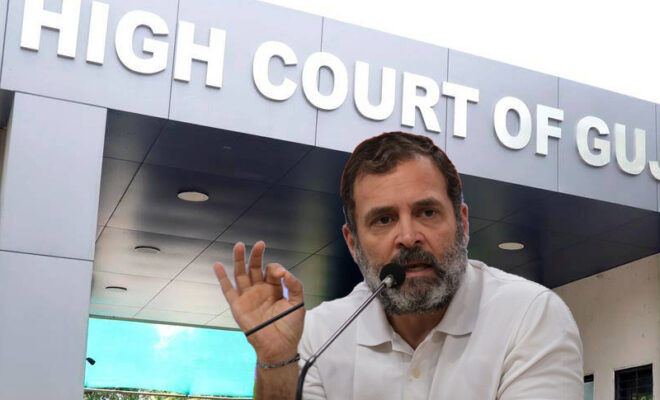Discussion Will Continue: Congress on High Court’s Decision Not to Overturn Rahul’s Defamation Conviction

The Gujarat High Court declined to grant a stay of Rahul Gandhi‘s defamation conviction on Friday, which strengthened the Congress’ resolve to pursue the case further.
The judge’s reasoning is being examined, according to Congress General Secretary Jairam Ramesh, and the matter will be pursued.
We have taken note of the Gujarat High Court’s single-judge bench’s decision to disqualify @RahulGandhi. The honorable judge’s reasoning is being examined, as it should be, and Dr. Abhishek Singhvi will give a detailed media briefing at 3 p.m. Jairam Ramesh, the general secretary of the Congress, said in a tweet that the decision only strengthened their resolve to continue their investigation.
A defamation case is going on against Rahul Gandhi:
The Gujarat High Court declined to grant a stay of the Congress leader’s conviction in the criminal defamation case stemming from his Friday remark about the Modi surname. The judgment was handed down by Justice Hemant Prachchhak’s court.
He is facing additional lawsuits even after the current case. The grandson of Veer Savarkar filed one such. The High Court asked the sessions court to rule on Gandhi’s appeal on the merits as soon as possible, stating that the conviction would not, in any way, be unjust.
After being found guilty and given a two-year prison sentence by the CJM’s court in Surat for his remark about people with the surname Modi, Rahul Gandhi was expelled from the Parliament with effect from March 23.
Rahul Gandhi had initially appealed the trial court’s decision to the District and Sessions Court in Surat, which had granted him bail and suspended his sentence pending the outcome of his appeal.
Also Read:- What Is The Digital Personal Data Protection Bill, Approved By Cabinet?
Gandhi would have been able to regain his Lok Sabha membership if the High Court had ordered a stay of his conviction. The Election Commission is required by Section 151A of the Representation of People Act to hold byelections within six months (180 days) of the date the vacancy occurred to fill any ad hoc vacancies in state and federal legislatures.



